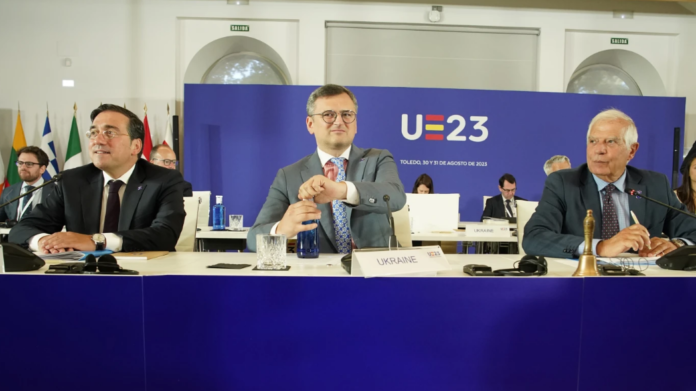European Union ministers expressed deep concern Thursday at the growing number of military coups across Africa as the bloc draws up sanctions targeting the junta in Niger which overthrew an elected government a month ago, according to AP News.
On Wednesday, the oil-rich nation of Gabon became the eighth Central or West African country to be hit by a military takeover in the last three years. The EU has not been training Gabon’s armed forces -– although French troops have -– but it has funded and taught troops in Mali and Niger.
The military training has focused mainly on the volatile Sahel region to combat extremism, particularly groups linked to al-Qaida. Many Europeans worry that instability in Africa will drive more people to flee, and the 27-nation bloc is already divided over how to cope with large numbers of migrant arrivals.
Some European countries have strong economic interests in Africa, notably France with its need for Niger’s uranium. The growing influence of Russia through the Wagner mercenary group, and the economic might of China are also forcing the bloc to rethink its policies.
“It’s clear that things haven’t gone well given the proliferation of military coups and the presence of Wagner gangs in the Central African Republic, Mali, Burkina Faso,” EU foreign policy chief Josep Borrell said,
Irish Foreign Minister Micheal Martin said that “we do need to evaluate our approach to Africa in the light of what has transpired.”
Talking to reporters in Toledo, Spain, where EU foreign ministers were meeting, Martin said training and supporting armies in Africa that might later turn on their governments “does present a very significant dilemma.”
Belgian Foreign Minister Hadja Lahbib insisted that the bloc’s security efforts on the continent are achieving results and should continue. “It’s important to preserve these gains and to avoid any domino effects, any contamination, as we see at the moment in Gabon,” she said.
Many ministers were quick to say that Africa should be driving the response to its own challenges. In Niger, they said, it is important to back the West African bloc ECOWAS. A senior ECOWAS official and Niger’s foreign minister in exile took part in their meeting.
Borrell said the ministers would listen carefully to ECOWAS “because I believe that the first thing to do is to show that we want the solutions to these problems to come from African institutions.”
He said the EU is drawing up a list of measures, including asset freezes and travel bans, for those involved in the coup, in line with sanctions under consideration by ECOWAS.
The junta in Niger has been exploiting grievances among the population toward former colonial ruler France and has turned to Wagner mercenaries for help.
France has 2,500 troops in Niger and Chad. Military training is central to their operation. France also has 400 troops based in Gabon whose mission also is to train forces there, as well as in other countries in the region.
Niger’s junta has authorized troops from neighboring Mali and Burkina Faso to come to its defense, raising the stakes in a standoff with other West African nations that have threatened to use force to reinstate President Mohamed Bazoum.
Italian Foreign Minister Antonio Tajani warned that using force “would be a disaster.”
“To have war in Niger (means) more people leaving this country, as in Sudan,” Tajani said, noting that any “instability of Africa is a danger for illegal immigration.”
He said Russia was another danger. “The Russians are not behind the putsch in Niger, but they will use the situation, the instability, for a new colonization. China will do the same. But the Russians in this moment, they are very dangerous, also through Wagner.”


